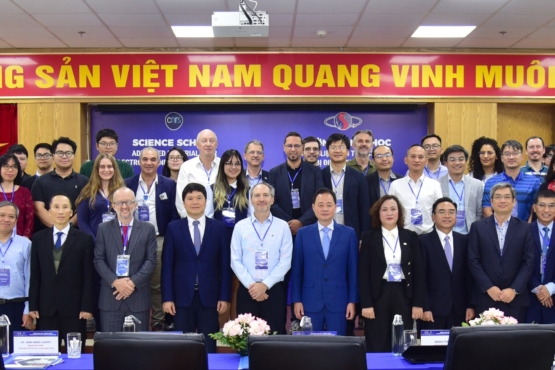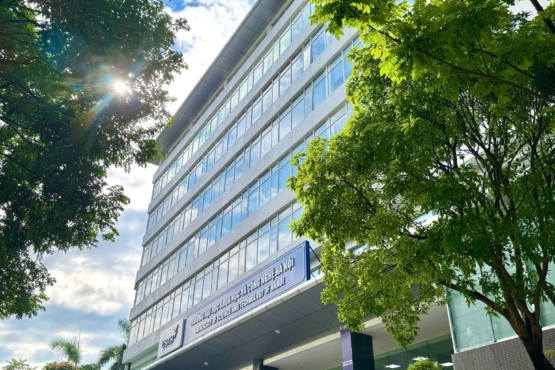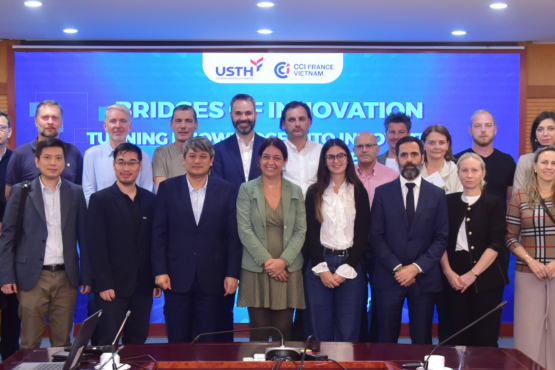Embracing the opportunity to teach at USTH, Dr. Jirawadee Polprasert has not only shared her expertise in renewable energy technologies but also formed lasting bonds with her students, witnessing their growth and celebrating their professional achievements. Let’s meet Dr. Jirawadee Polprasert and learn about her experience in Vietnam and her time at USTH.
Falling in love with Vietnamese culture
Dr. Jirawadee Polprasert is a lecturer in the Electrical and Computer Engineering Department at Naresuan University in Thailand. She has devoted much of her career to advancing renewable energy technology, smart grids, electrical systems, and computer-aided power analysis.
Her introduction to Vietnam came through her involvement with the Greater Mekong Sub-region Academic and Research Network (GMSARN). During her first trip to Vietnam in 2009, for a conference in Ha Long Bay, Dr. Polprasert developed an instant interest in Vietnamese cuisine, marking the beginning of her long-lasting connection with the country. Frequent visits to Hanoi for GMSARN-related activities allowed her to immerse herself in the city’s rich culture and dynamic society.
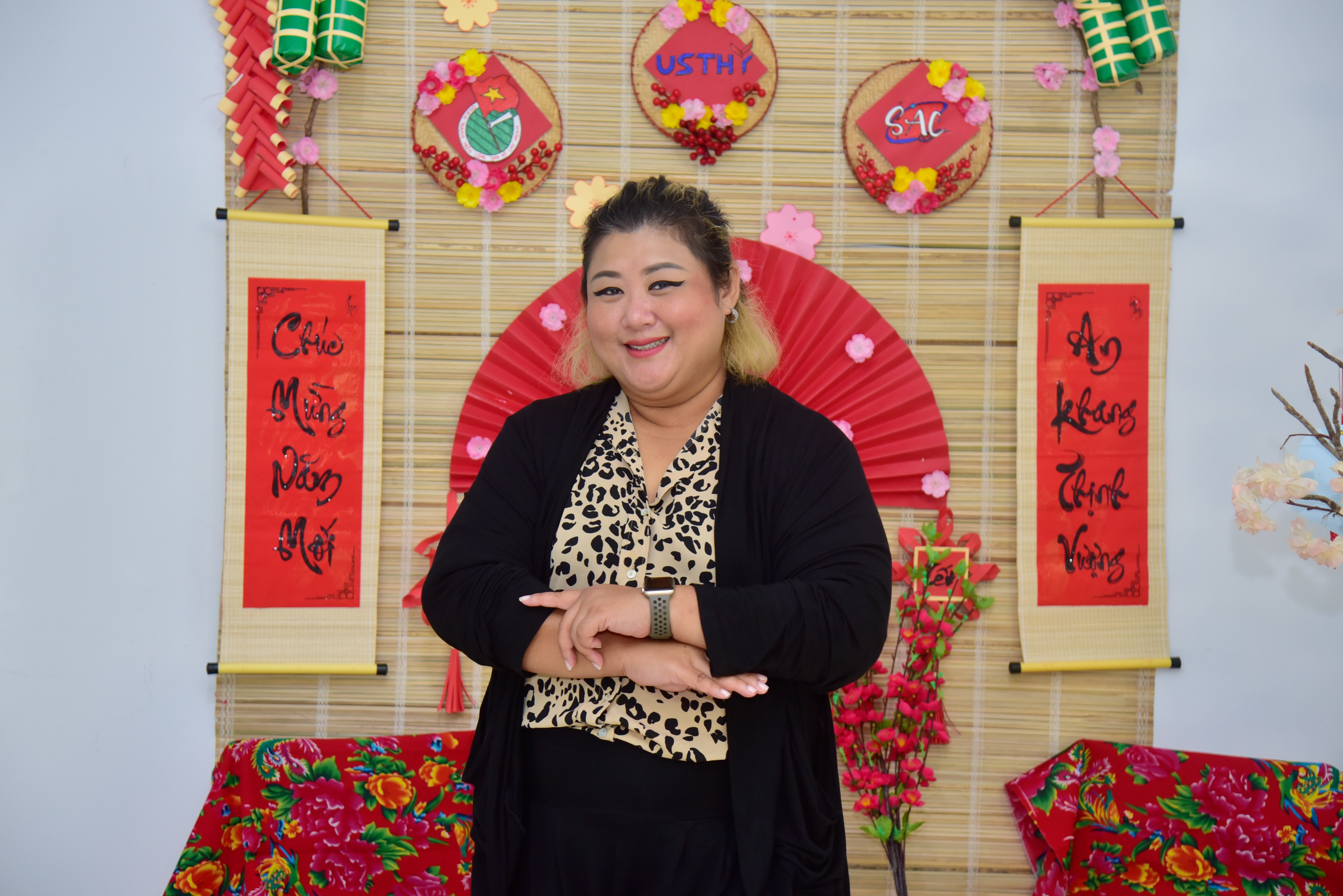
Thus, when a colleague presented her with the opportunity to teach in the Electrical Engineering and Renewable Energy bachelor program at USTH, Dr. Polprasert embraced it without a second thought. This wasn’t just a professional opportunity; it was a doorway into the heart of Vietnam, offering her the chance to engage more deeply with its people and traditions.
As a true food enthusiast, she finds joy and intrigue in exploring Vietnamese cuisine. When she talks about her food adventures, her eyes light up, and she can’t help but gush over her top picks: the smoky flavors of bún chả, the comfort of a hearty bún đậu, the crunch of a perfect bánh mì, and the unique sweetness of cà phê trứng. She’s got a special place in her heart for the delicate balance of Vietnamese fish sauces—a standout that beautifully contrasts with the bolder scents of Thai varieties. They’re indeed the secret sauce making every Vietnamese dish uniquely tantalizing.
In addition to the cuisine, Dr. Polprasert enjoys the affordability of hair salons and nail shops in Hanoi, adding another dimension of pleasure to her stay.
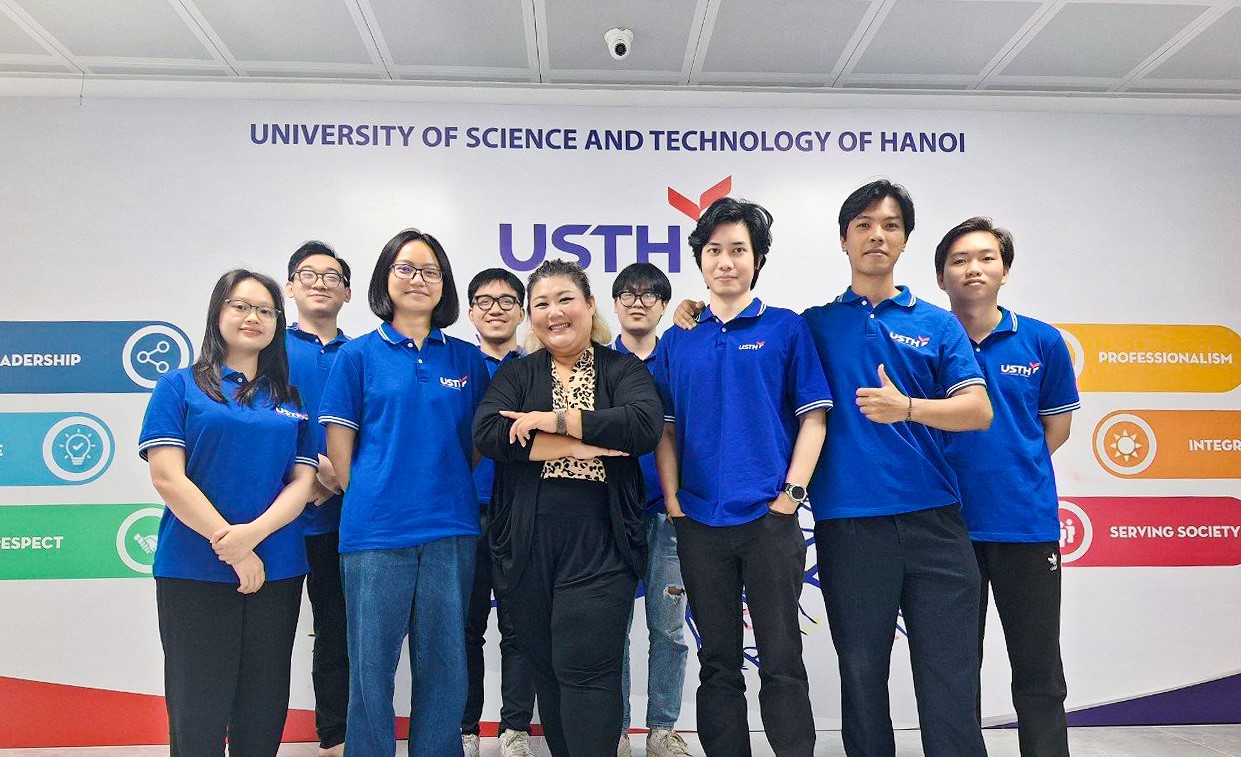
Surprisingly, she found navigating the city by motorbike easier and more enjoyable than in Thailand, making it her preferred means of transportation for exploring Hanoi’s lively culture.
Fostering strong bonds with USTH students
Central to Dr. Polprasert’s Vietnamese experience is her interaction with USTH students. Having taught several intakes before and after the COVID-19 pandemic, she is impressed by their enthusiasm and eagerness to learn. Witnessing their academic and professional growth and success has been deeply rewarding for her.
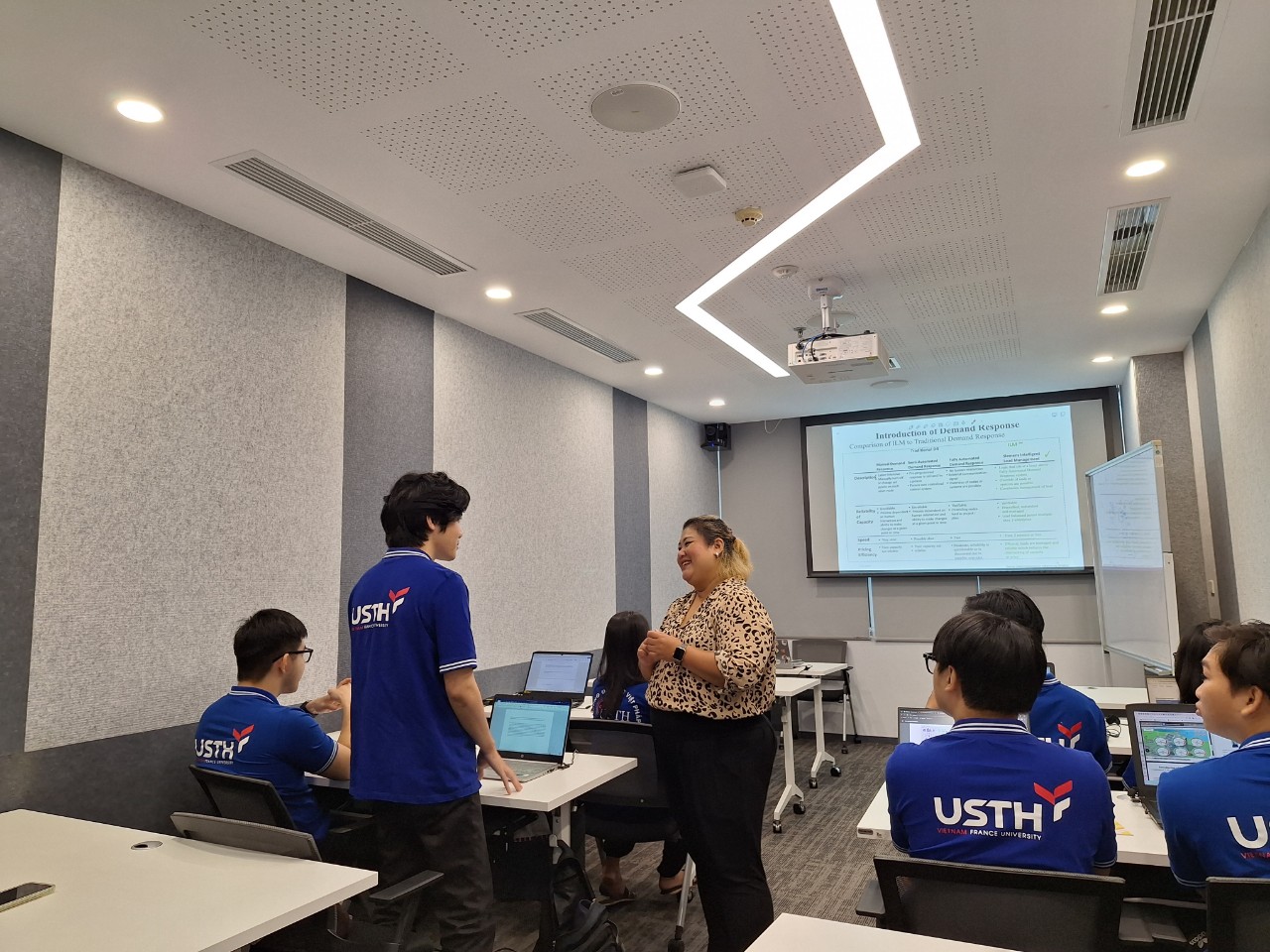
Polprasert’s time at USTH is filled with moments that bring out the warmth and camaraderie she shares with her students. The little things—like enjoying lunch together or being welcomed into their homes—have made her stay so much more than a series of teaching days. One memory that stands out for her involves students bringing her a homemade lunch to share. Such gestures of kindness deeply touch her, reinforcing the special bond she has with her students.
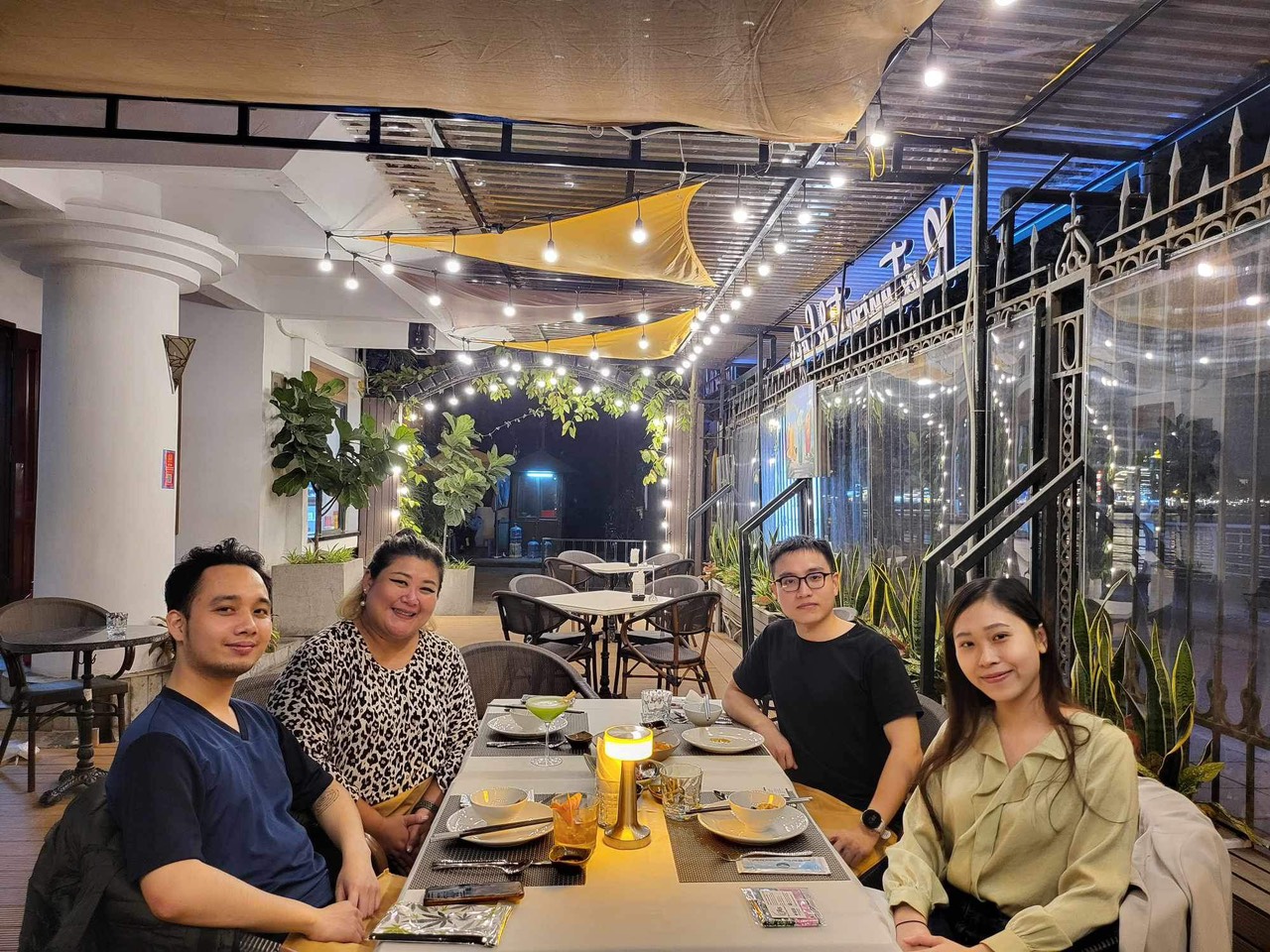
She still maintains contact with numerous USTH alumni, many of whom have carved out impressive careers for themselves. She expresses her strong belief in the potential and ability of USTH to succeed in their chosen fields. What moves her the most, though, is seeing their gratitude—not just for the academic lessons but for the life advice she’s passed on.
The close relationship extends beyond the classroom, as evidenced by her supervision of USTH students during their internships at her university. Having supervised two students so far, she is eager to support more USTH interns in the future.
As an experienced expert, she encourages students who would love to further their career in the field of Electrical Engineering and Renewable Energy to go out of their comfort zone and try to pursue their educational and professional experiences internationally. She emphasizes the importance of learning cutting-edge technologies from more developed countries so that upon their return, they can contribute significantly to Vietnam’s development.




